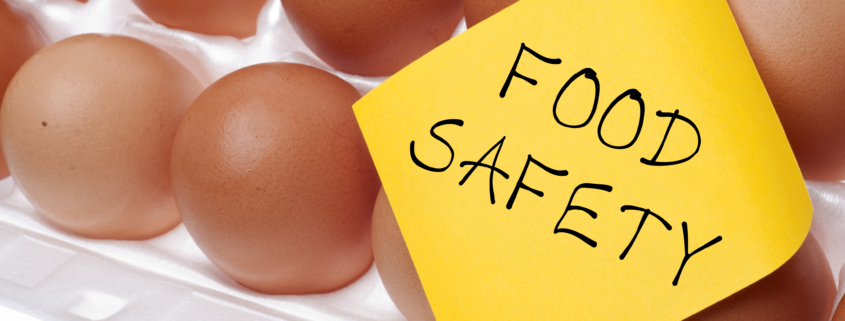We hear about food item recalls on the news frequently, yet most people have no idea what to do about them.
A recall can happen at any time and does not necessarily mean the food you have is tainted. In some cases, what triggers a recall may just be a mislabeling of ingredients.
However, in other cases what triggers a recall is actually something very dangerous. If you have been injured due to recalled food items, seek legal help. An experienced product liability lawyer can help you determine what your legal options are and how best to proceed.
The lawyers at Lytal, Reiter, Smith, Ivey & Fronrath have many years of experience handling product liability cases.
If you have any questions, please do not hesitate to contact us.
How and why are foods recalled?
A recall of a food product can be a frustrating event for a consumer who has purchased what they believe to be a safe item. The reasons behind a recall can vary widely.
In some cases, what may have originally been considered an average safety flaw becomes known as extremely dangerous, prompting the release of what is called a voluntary recall.
In other cases, what creates a recall may be an issue that is not life-threatening but the product is deemed to be of lower quality than what is expected by consumers. This is known as a mandatory or court-ordered recall.
The type of recall also depends on what food item is being recalled. A general food safety recall may involve many items while a recall of a specific brand name would be more limited. In most cases, what triggers the need for a recall is what is known as adulteration or contamination, where what was assumed to be food is something very different and often harmful.
This could be something as benign as the wrong type of seasoning being used, but it could also be a deliberate act such as adding a poisonous substance.
It is important to remember that not all recalls are announced to the public. The company may only contact those who have bought the product to get the items back.
Types of Food Recalls
There are three classes of food recalls.
Class I: The Food Is Potentially Dangerous and Could Cause Serious Health Risks
This is the most serious type of recall and includes items that may be contaminated with something like E. coli or another dangerous pathogen.
If you have any of these products in your home, it is important to discard them immediately.
Class II: The Food May Cause Temporary Illness or Some Other Non-Serious Health Issue
These recalls are less serious and generally involve non-food items that may be labeled incorrectly, such as the wrong type of oil being used in preparing a food item.
You can usually return the product if you wish and request a refund.
Class III: The Product Is Not Potentially Dangerous and Should Not Cause Illness but Is Being Recalled for Another Reason
If you have any of these products, they are still safe to consume unless the recall was issued due to some other reason such as contamination with an allergen.
What to do if you have recalled food items at home?
Many people panic when they find out that they have a recalled food item in their home. But there is usually no cause for alarm.
Don’t immediately throw out the item. First, check the recommendation from the manufacturer who issued the recall. They will usually advise on what to do next.
For example, if you throw out the item, you may preclude yourself from a refund offered by the manufacturer.
If you have not eaten the contaminated food, but have touched it or cooked it, be sure to wash your hands and any surfaces that may have come into contact with it. Discard the cooked items.
If you have any questions, please do not hesitate to call the manufacturer or the attorneys at Lytal, Reiter, Smith, Ivey & Fronrath for more information.
What to do if you ingested recalled food items?
Your next steps will largely depend on the reason for the recall.
If you ingested flour that has been recalled for a mislabel of the size of the bag, you are perfectly safe. If you ingested flour that accidentally contained milk powder, an allergen that was not advertised, but you are not allergic to dairy, then you are likely safe.
However, if the item is being recalled due to contaminants, you should check the USDA or FDA guidelines on symptoms regarding the illness in question. Then monitor yourself for the illness.
The attorneys at Lytal, Reiter, Smith, Ivey & Fronrath can help you determine what legal actions may be appropriate if you ingested what you believe to be a recalled food product.
Steps if You Have Been Injured by Recalled Food Items
If you have been injured by what you believe to be a recalled food product, it is important that you take the following steps.
1) Throw out the contaminated food items.
2) Disinfect your kitchen and your hands.
3) Check the USDA or FDA websites to find symptoms to monitor.
3) If you experience any symptoms, seek medical attention.
4) File a complaint with the FDA and keep a copy for your records.
5) Document what you did and what led up to what happened.
6) Contact Lytal, Reiter, Smith, Ivey & Fronrath’s product liability lawyers.
Product Liability Lawyers are Here for You
What is the best way to handle recalled food items? It may start with a product liability lawyer. If you have been injured by a recalled food product, the attorneys at Lytal, Reiter, Smith, Ivey & Fronrath are here to help.
We have years of experience dealing with product liability lawsuits and will guide you through the process every step of the way.
Call us today for a free consultation.




